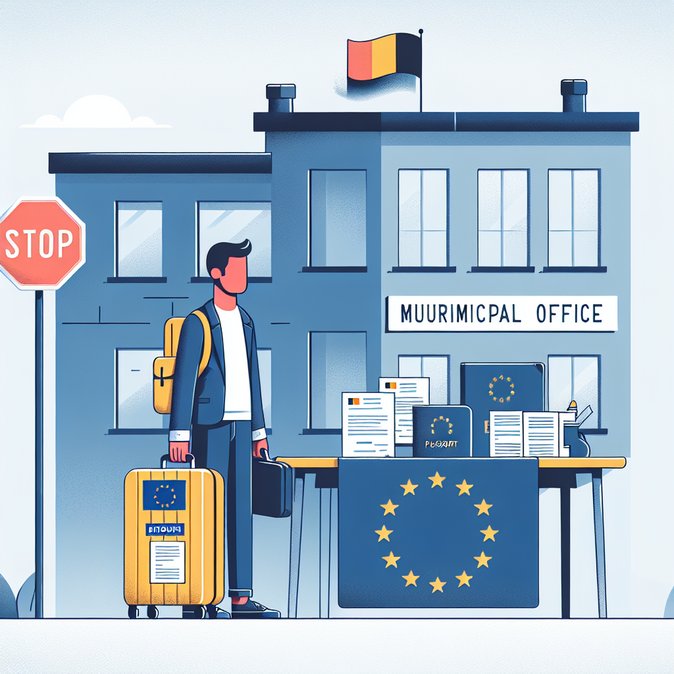
Belgium’s Immigration Office has quietly overhauled the way European Union citizens obtain proof-of-residence, reinforcing a trend toward tighter document scrutiny across the Schengen area.
Under the new rules, which took effect on 1 September 2025 but were formally published on 23 October, first-time applicants at local town halls (communes/gemeenten) must now present two distinct bundles of evidence: (1) a valid EU passport or national ID card to prove citizenship and (2) supporting papers that justify the intended residence status – for example an employment contract, freelance registration, enrolment letter from a Belgian school or proof of sufficient means. Incomplete files will no longer be accepted; municipalities are instructed to refuse an “Annex 19” receipt until the dossier is complete.
Corporate mobility managers say the seemingly administrative tweak could lengthen onboarding timelines for intra-EU transferees. Applicants who previously received a temporary registration and could upload missing items later must now arrive with a fully prepared file or risk restarting the clock. Employers are therefore urging assignees to gather salary slips, Belgian rental contracts and EU medical insurance certificates before landing in Brussels.
The Immigration Office argues that the change brings Belgium into line with EU Free-Movement Directive 2004/38, which allows member states to verify that mobile EU citizens are “workers, self-employed, students or persons with sufficient resources.” Critics, including several MEPs, warn that the lack of a grace period could push newcomers into irregular status if communes have long appointment queues.
Practical tip: HR teams should reserve extra lead-time (7-14 days) for document collection and schedule municipal appointments as early as possible, particularly in Brussels and Antwerp where slots fill quickly. EU nationals who fail to file within 90 days of entry risk an administrative fine and may have to exit and re-enter Belgium to restart the process.
Under the new rules, which took effect on 1 September 2025 but were formally published on 23 October, first-time applicants at local town halls (communes/gemeenten) must now present two distinct bundles of evidence: (1) a valid EU passport or national ID card to prove citizenship and (2) supporting papers that justify the intended residence status – for example an employment contract, freelance registration, enrolment letter from a Belgian school or proof of sufficient means. Incomplete files will no longer be accepted; municipalities are instructed to refuse an “Annex 19” receipt until the dossier is complete.
Corporate mobility managers say the seemingly administrative tweak could lengthen onboarding timelines for intra-EU transferees. Applicants who previously received a temporary registration and could upload missing items later must now arrive with a fully prepared file or risk restarting the clock. Employers are therefore urging assignees to gather salary slips, Belgian rental contracts and EU medical insurance certificates before landing in Brussels.
The Immigration Office argues that the change brings Belgium into line with EU Free-Movement Directive 2004/38, which allows member states to verify that mobile EU citizens are “workers, self-employed, students or persons with sufficient resources.” Critics, including several MEPs, warn that the lack of a grace period could push newcomers into irregular status if communes have long appointment queues.
Practical tip: HR teams should reserve extra lead-time (7-14 days) for document collection and schedule municipal appointments as early as possible, particularly in Brussels and Antwerp where slots fill quickly. EU nationals who fail to file within 90 days of entry risk an administrative fine and may have to exit and re-enter Belgium to restart the process.







